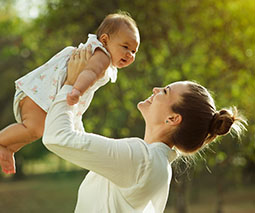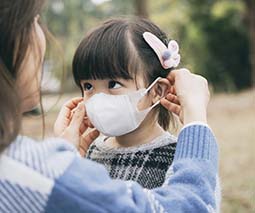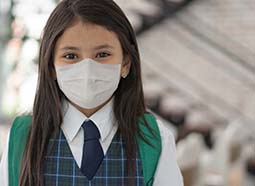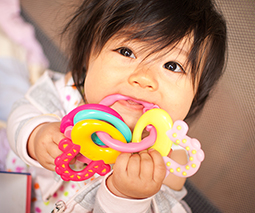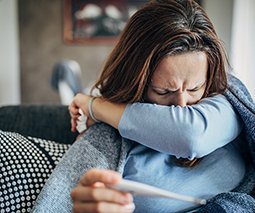Everything you need to know about eczema: Signs, symptoms and treatment

Eczema might not be a life-threatening condition, but it can cause a significant amount of discomfort for sufferers and their family.
Everything parents need to know about eczema
Cheryl Talent is President of the Eczema Association of Australasia. She’s urging all parents to become eczema aware, highlighting that as many as one in eight children are suffering from the inflammatory skin condition – the same number of children who experience chronic asthma.
“The condition is most prevalent in childhood, but one in twelve adults suffer from eczema as well, so we want people to know there is support out there,” said Cheryl.
“Eczema ‘flare-ups’ can often lead to missing school and other activities. For some severe sufferers, it can also mean hospitalisations and costly treatment,” she added.
“Night-time itching can cause sleepless nights and place a significant strain upon parents and kids.
We asked Cheryl everything parents need to know about eczema, including signs, symptoms and treatment.
What are the signs and symptoms of eczema?
Eczema causes a dry, itchy skin rash that can be quite uncomfortable with red, patchy or cracked skin. Commonly it appears on the face, hands, neck, inner elbows, backs of the knees and ankles, but can appear on any part of the body. Scratching the patches can worsen the itching and make the skin ooze clear fluid – prolonged scratching can cause a secondary infection.
What causes eczema?
Most people with eczema have a genetic predisposition which means a family history of eczema, asthma or hay fever. For children, one parent with eczema gives them a 50 percent chance of developing it but if both parents have eczema children can have an 80 percent chance.
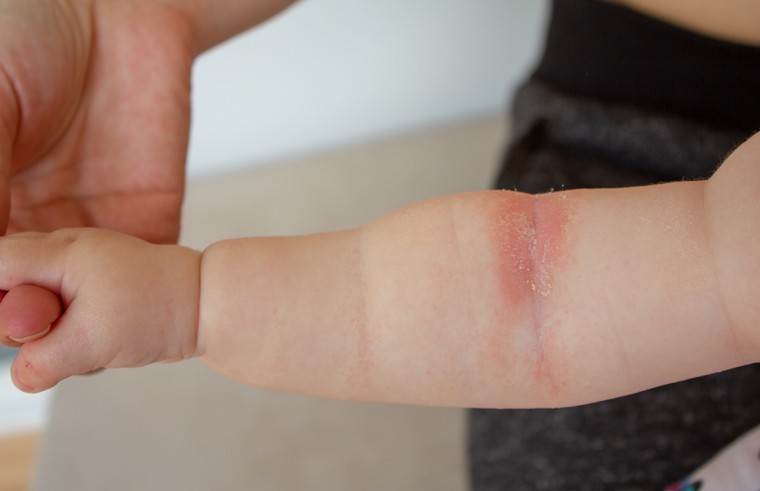
However, you can also come into contact with something you react to and develop eczema as an allergic reaction. It is hopeful that ongoing research will eventually give an exact cause as to why people develop this debilitating skin condition.
People with eczema also seem to more sensitive to other allergens, such as foods and even the environment. Sufferers have a defective skin barrier which lets allergens penetrate to set up a reaction, and causes skin to lose moisture which keeps it dry.
What can trigger eczema to ‘flare-up’?
Internal triggers that may contribute to a flare-up are dairy and wheat products, citrus fruits, eggs, nuts, seafood, chemical food additives, preservatives and colourings, and stress.
External triggers include tobacco smoke, chemicals, weather (hot and humid or cold and dry conditions) and air conditioning or overheating.
Some sufferers react to specific allergens such as house dust mites, moulds, grasses, plant pollens, foods, pets and clothing, soaps, shampoos and washing.
Can you get rid of eczema?
About 30 percent, or 1 in 3, Australians are affected by eczema at some stage in their lives. Sufferers can go for quite long periods without a flare-up and often their eczema goes into ‘remission’ – however, sufferers can never really relax. Most eczema sufferers also have very sensitive skin which needs extra care even when they are not having a flare-up.
How can parents treat eczema in children?
No treatment works for every single sufferer; however, proper management is achievable for most people with eczema. This includes using topical treatments such as steroid creams to reduce inflammation, and keeping the skin barrier hydrated with a good quality moisturiser. Knowing your triggers and working to avoid them can also be helpful.
For more information on managing eczema in your child or yourself, visit the Eczema Association of Australasia website.
Read more about your baby’s skin:
